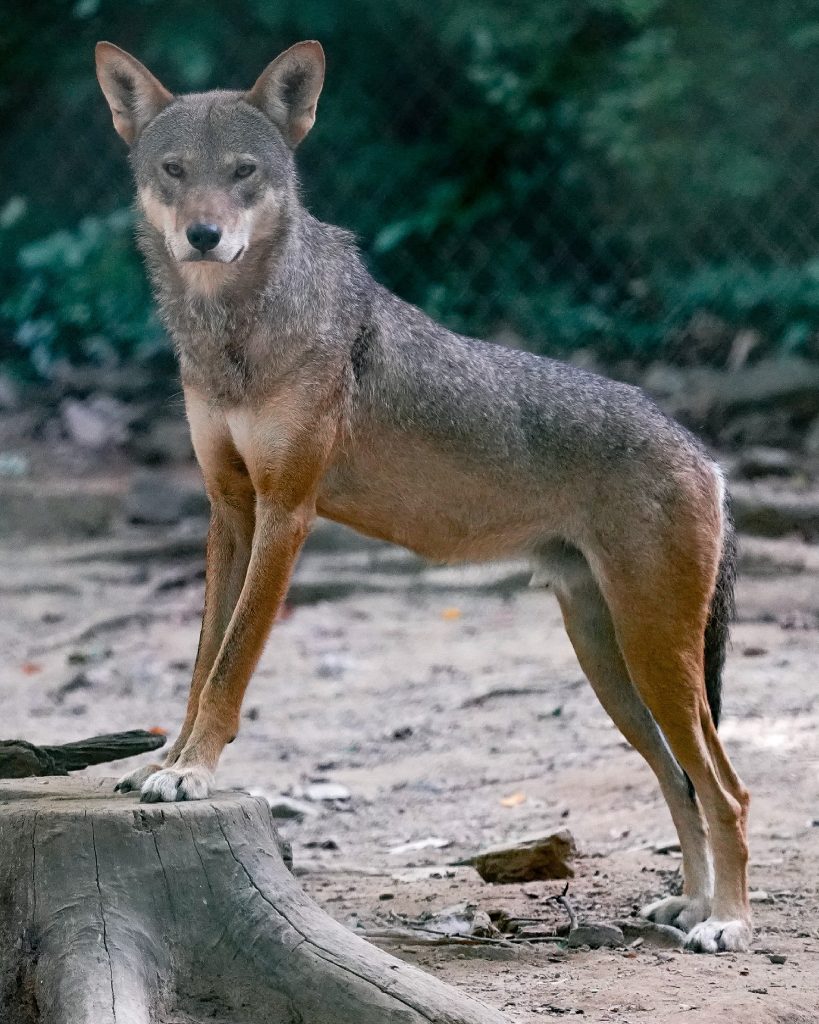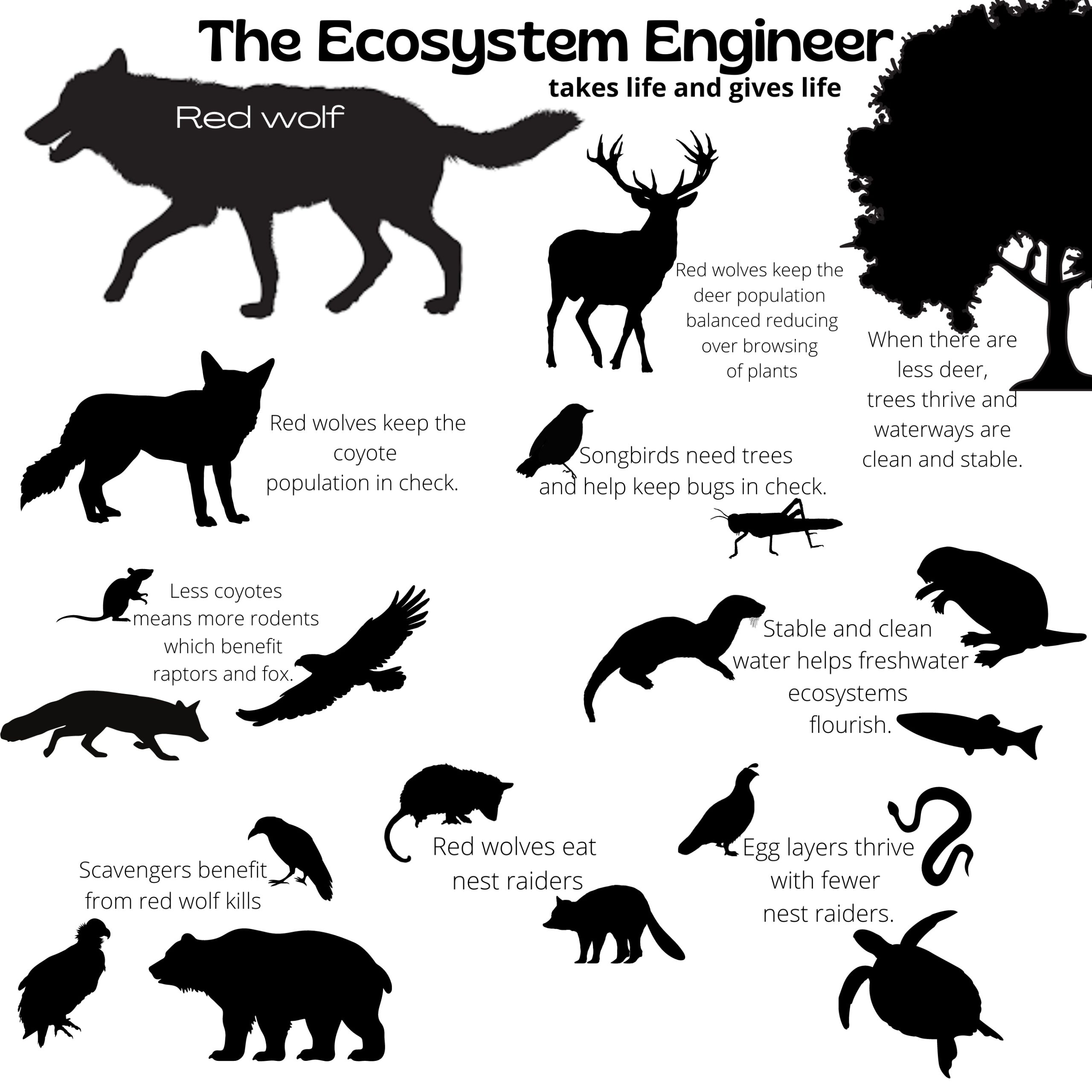
A Predator’s Role in Balancing the Ecosystem
Written By: Scarlett Rockhold, Communications Manager
The American red wolf is one of the rarest animals on the planet. At one point there were only 17 red wolves left in the world. Zoo Knoxville not only participates in the Red Wolf SAFE (Saving Animals from Extinction) program, but we also partner with the U.S. Fish and Wildlife Service (USFWS) in reintroducing red wolves back into the wild.
Red wolves play an important role in the health of the ecosystem. As predators, wolves are often villianized. But you may not realize they give life as well.
When predators such as red wolves are not present, there becomes an overpopulation of animals such as deer. When the deer population is allowed to roam freely and graze wherever they like, the overgrazing causes negative effects to the ecosystem. Plant species suffer, which causes animals that use those plants as food or shelter to suffer. This can even affect the health of rivers.
A study took place in 1995 when gray wolves were reintroduced back into Yellowstone National Park after 70 years without wolves. Without the wolves as predators, elk populations grew leading to massive erosion to the park. Elk grazed on willows, and beavers needed those willows to survive in the winter. The absence of wolves upset the balance of the natural order.
When wolves were reintroduced back into the park in 1995, the biodiversity of the park made a huge comeback. Not only did the wolves feed on the elk providing food for scavengers and nourishment to the environment, they more importantly changed the behaviors of the elk.
Elk began to stay on the move in order to prevent being hunted by the wolves. They no longer had time to overgraze which allowed the plants to thrive. There became an abundance of willows allowing beavers to survive the winters and do their important work as dam builders that led to so much more aquatic life and clean waterways.

One important and adorably cute species that thrives in clean water is the river otter! Here in East Tennessee, we witnessed the rebirth of an aquatic ecosystem with the return of river otters. Due to the fur trade and habitat destruction river otters became practically extinct in middle and east Tennessee, but due to a successful reintroduction program in the 1980s river otters are back and thriving.
River otters are a conservation success story providing hope that through successful reintroduction efforts, red wolves will also once again be restored to their natural habitat!
Check out the video below to learn more about the critical role wolves play in balancing the ecosystem.
Join us in our conservation efforts by becoming a member today!